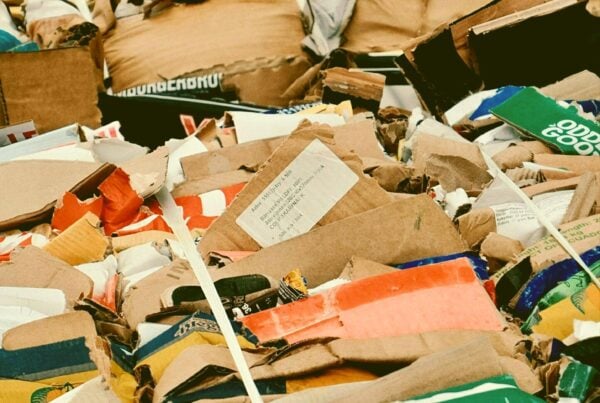Don’t worry you’re not alone, there are so many different instructions on what goes where and products telling us that they are “eco” or “green” and can be recycled or composted so we are here to help you navigate to the correct bin.
Our first piece of advice is, don’t believe everything you read online as a lot of it can be an opinion not based on research or facts. A typical example when it comes to waste that we always get “informed” about is “sure they just bury or burn it all so why bother?”
Untrue!!
Yes, we do bury and burn some of our waste but this will be waste which cannot be recycled be that packaging or food and this is unavoidable because of the way we live. We currently live in a world where everything has too much packaging………like why does and avocado need a rigid plastic tray covered in soft plastic wrap?? At some point in history someone in a marketing company had that great idea and you know what, we bought into it and now we’re stuck with it [so who’s to blame?]…..thankfully things are slowly starting to change.
More supermarkets are providing loose options and packaging free shops are popping up all over the place. And whats driving this change…….us, you and me, the customer, we have the power to make them change through the choices we make.
But we digress, we are here to talk about which bin to use for all that extra unwanted packaging. We have put together some info on the types of labelling related to recycling and disposal that you will commonly see and tell you what they really mean. We will be showing these in colour version where we can but all can also be found in black and white.
| Symbol | Explanation |
 |
This is called the Green Dot, it is one of the most widely used recycling symbols on packaging and therefore causes the most confusion.Its usage means that the producer of the packaging has contributed to the end recovery of the packaging, in Ireland this scheme is Repak.
The Green Dot is not in itself a recycling symbol nor does it mean that the packaging material on which it is marked is either recycled, or made using recyclable content. It is more a mark of the producer’s environmental responsibility and contribution to recycling. |
 |
The Mobius symbol, this indicates that an object is capable of being recycled, not that the object has been recycled or will be accepted. It does not necessarily mean that it should be placed in your household recycle bin either.Sometimes this symbol is used with a percentage figure in the middle to explain that the packaging contains x% of recycled material. |
 |
Glass This symbol asks that you recycle the glass container. Please dispose of glass bottles and jars in a bottle bank and remember to remove the lids, these can be placed in your recycle bin at home.
You can find your local bring bank on our map |
 |
Product Durability This type of symbol indicates the time until which the product is good for use or consumption.
This symbol has nothing to do with the recyclability of the packaging |
 |
Recyclable aluminiumThis symbol indicates that the item is made from recyclable aluminium.
|
 |
TidymanThis symbol is only asking you not to litter. It does not relate to recycling but is a reminder to be a good citizen, disposing of the item in the most appropriate manner.
|
 |
Waste electricalsThis symbol explains that you should not place the electrical item in the general waste. Electrical items can be recycled through a number of channels.
|
 |
Paper, card and woodThis symbol shows that the wood used to produce the material has come from a sustainable source and might be made of recycled material.
|
 |
CompostableProducts certified to be industrially compostable according to the European standard EN 13432/14955 may bear the ‘seedling’ logo. Never place compostable materials into the recycling with other plastics; as it is designed to break down it cannot be recycled and contaminates recyclable plastics. Where something is compostable this does not mean that it will breakdown in nature, it’s not a piece of fruit so it needs to go into a bin |
 |
Plastic resin codesThis identifies the type of plastic resin used to make the item by providing a ‘Resin Identification Code’. It is represented with a ‘chasing arrows’ symbol surrounding an a number between 1 and 7 that defines the resin used.
In Ireland you don’t need to worry about these symbols and numbers as the rule is that ANY/ALL rigid plastics regardless of number, colour, symbol or lack thereof can be placed in the household recycle bin.
|
 |
The OPRL LabellingThis is the most commonly found labelling to direct you on what to do with your packaging.
These labels are designed for the UK and their collection system so it will not always be correct if you are in a different country as collection systems can vary. The ORPL are developing a newer system which will focus on the recyclability of the packaging, in Ireland we focus on what receptacle or bin the packaging should be placed in. |
While it’s very important that we are aware of what all of these symbols mean we have tried to simplify the messaging as much as possible with the introduction of standardised national recycle list which is very specific to how waste is collected here in Ireland.
The list is made up of three broad categories [some examples of these are displayed but this does not mean that the categories are limited to these]
- Paper and Cardboard
- Rigid Plastics
- Tins and cans
You are asked to then present all of these items
- Clean
- Dry
- Loose
This will ensure that the maximum value can be extracted from your household recycle bin. If you stick to the list above you won’t go wrong but make sure to check back every so often as the list is always evolving and expanding, one such example is foil, this can now be placed in the recycle bin as long as it’s clean
Source: https://www.mywaste.ie/news/what-do-all-of-these-symbols-mean/


